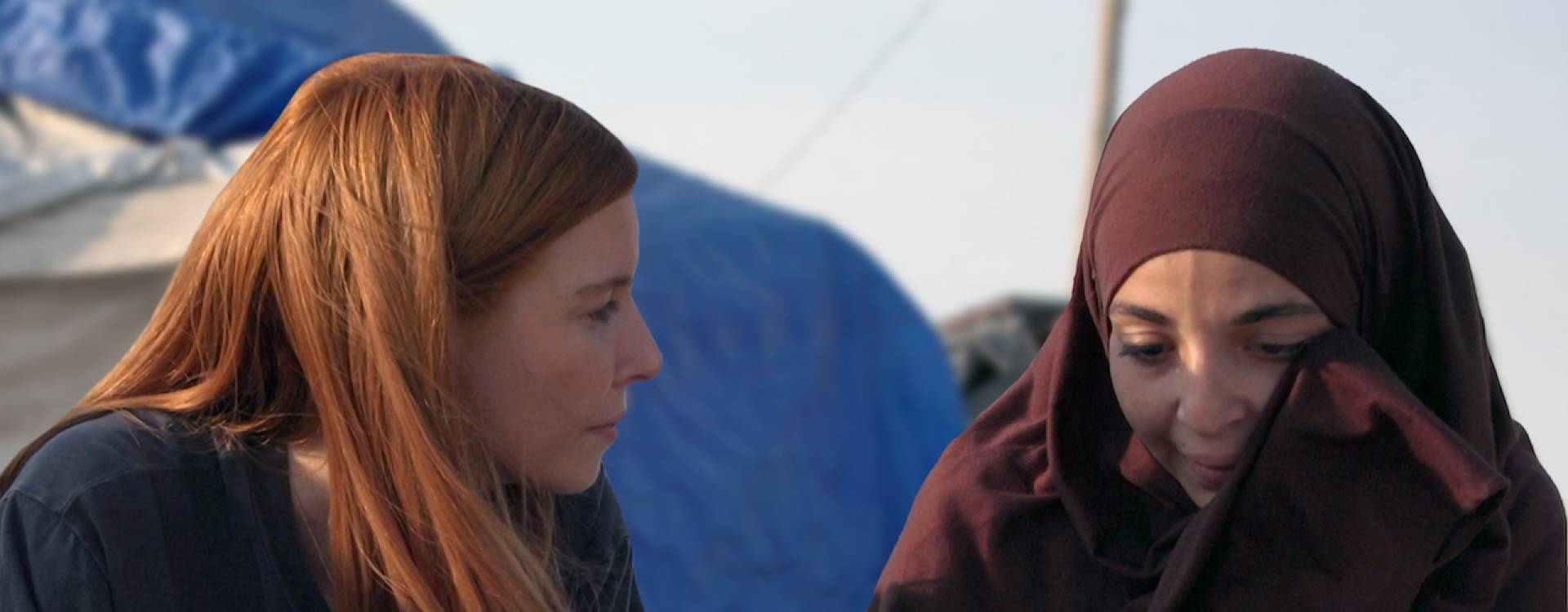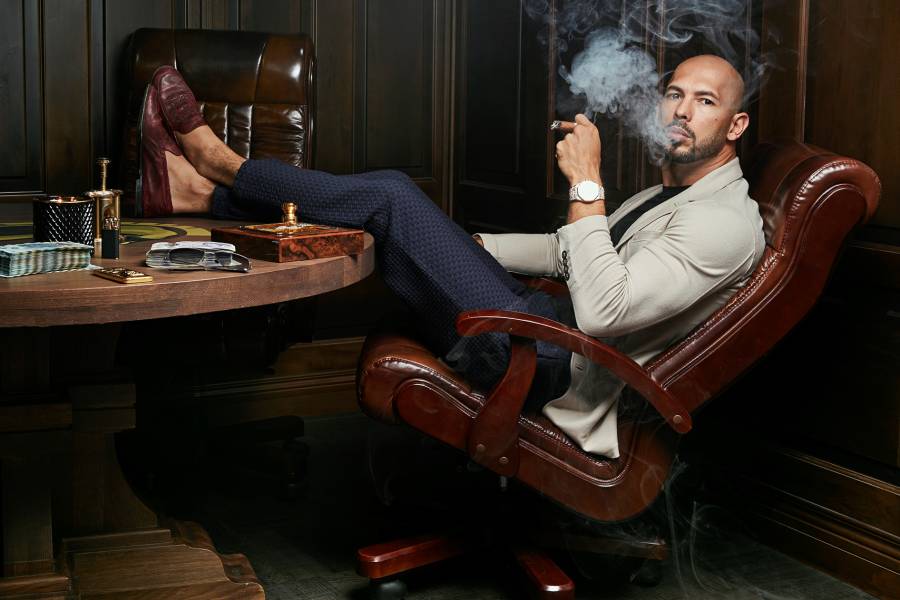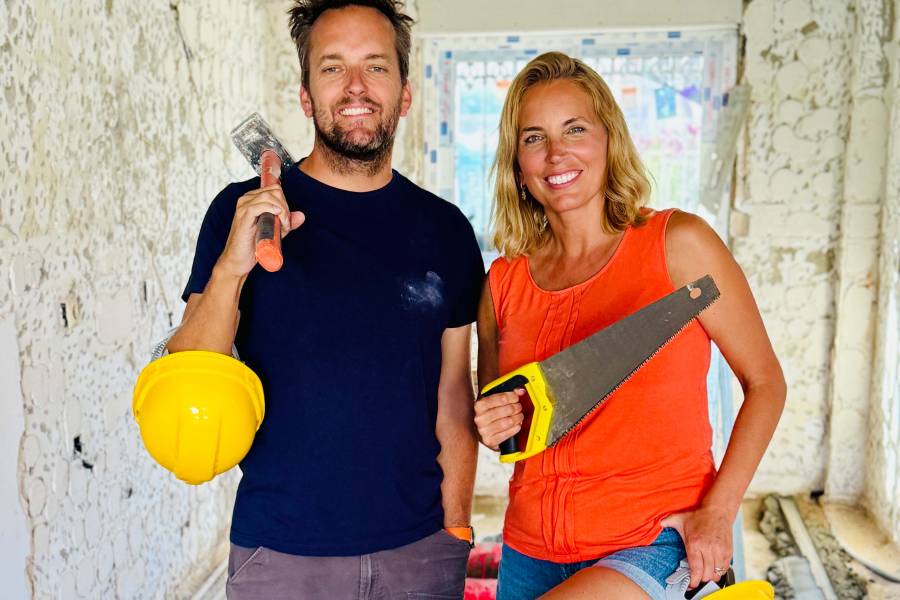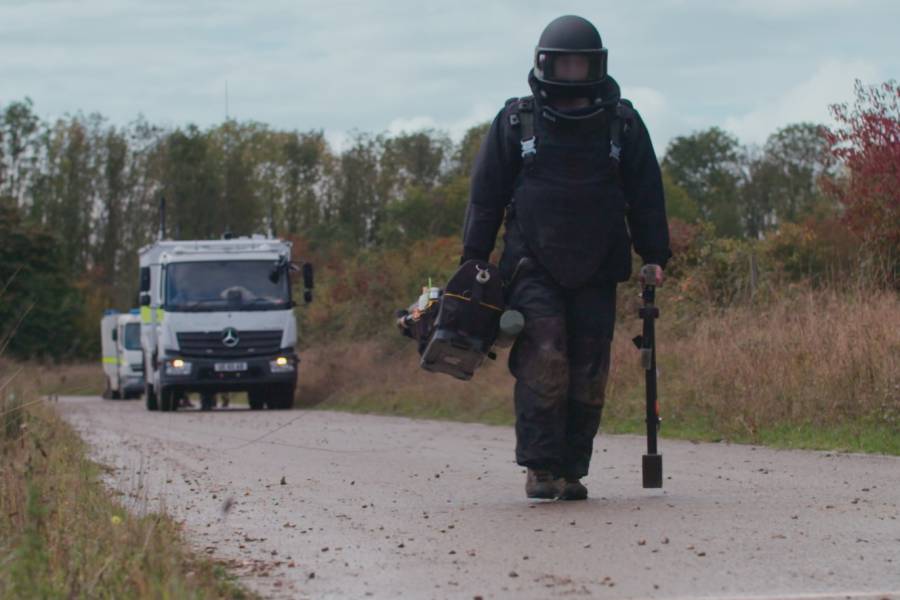
Stacey Meets the IS Brides
Duration: 1 x 45'
Play Trailer Play Screener Contact Sales Collection: Stacey DooleyStacey confronts the contentious issue of how the West should respond to those who joined IS and the complex ethical dilemma facing Western society: what do we do with the IS brides?
Following the defeat of ISIS forces in Baghuz, thousands of foreign men and women were captured. Many of the women married fighters and had children in Syria, among them Briton, Shamima Begum who had three children, all of whom have died either in the fighting or in the camps. Stacey visits the two main camps in northern Syria, al-Hol and al-Roj, meeting European, American and Australian women and their children, as well as talking to the Kurdish foreign minister and the remarkable female commander of al-Roj camp.
The Kurds, who control the northern part of Syria, are appealing to the international community to help them deal with the thousands of foreign women – sometimes referred to as ISIS Brides – many of whom are still dangerous IS sympathisers. They want these women and their children to be dealt with by the countries they came from. But many people in Europe, America and Australia feel these women are dangerous terrorists, and have refused to repatriate them, or stripped them of citizenship.
In al-Hol she talks to British women who are unapologetic about the atrocities committed in the name of ISIS, and demand to return to the UK. Shamima Begum was in al-Hol when she was first filmed, but after speaking out she was stripped of her British citizenship. At the same time, the ISIS leadership inside the camp decided Begum had not been sufficiently vocal in her support of ISIS, and she was moved from al-Hol in fear of her life.
Moving on to al-Roj, Stacey starts to unpick the complex forces at work – every woman she speaks to has to weigh every word. They know there will be an impact of what they say back home and this might affect the chances of ever returning, or getting their children to safety. But at the same time the ISIS leadership inside the camp will be listening. As with Shamima Begum, they will view any betrayal as a capital offence. These women know their words could mean their freedom or their lives. As one woman puts it under her breath to Stacey, “You will leave, we have to stay”.
Stacey is given extraordinary freedom to move around the both camps, which have until now been closed to journalists. She speaks to woman from many different Western countries. Whatever offences they may or may not have committed, they are currently being held without trial in conditions that would certainly not be regarded as acceptable in their home countries. And whatever their guilt or innocence, there can be no doubt that their children are wholly innocent – though every day they remain in the camps increases the likelihood that they will be radicalised and become devoted to the cause their fathers died for. For now, the Kurds are containing these women and children as best they can, and are committed to treating them more humanely than ISIS treated its prisoners – however this is not a long term solution. Western powers should not expect the Kurds to be gaolers on their behalf indefinitely – Stacey explores the question of what to do with the ISIS women left behind.
For BBC1


Other programmes in this series

Stacey Dooley: On The Psych Ward

Stacey and the Lockdown Babies

Stacey Dooley Investigates: Gypsy Kids In Crisis

Stacey Dooley Investigates: Mums Selling Their Kids For Sex

Stacey Dooley: The Young And Homeless

Stacey Dooley Investigates: Kids Selling Drugs Online

Stacey Dooley Investigates: Spy Cam Sex Criminals

Stacey Dooley Investigates: Sex In Strange Places

Stacey Dooley: Face to Face with The Bounty Hunters

Stacey's Lockdown Heroes
Also in this genre

Stacey Dooley Investigates: Sex In Strange Places

Immigration: Tearing Our Family Apart

Living with the Boss - Format

Stacey Dooley Investigates: Kids Selling Drugs Online

The Titan Sub Disaster: Minute by Minute

The Knowledge: The World’s Toughest Taxi Test

Deliveroo: How Do They Really Do It?

Sheridan Smith: Becoming Mum

Stacey Dooley Investigates: Mums Selling Their Kids For Sex

Britain’s Refugee Children

Stacey and the Lockdown Babies

Stacey Dooley: The Young And Homeless

Life On The Psych Ward

School of Hard Tricks - Format

Bring Back the Bush: Where Did Our Pubic Hair Go?

Stacey Dooley Investigates: Gypsy Kids In Crisis

Face The Consequences - Format

Our Soldiers: Return To Civvy Street

School of Hard Tricks

Heal Me In The Name Of Jesus

Growing Up Poor: Britain's Breadline Kids

Poundland: How Do They Really Do It?

How To Be A Young Billionaire

Britain's America's Cup Challenge 4K

Living With My Supersized Pets

Michael Palin In North Korea

Born On The Breadline

Lucy Letby: The Nurse Who Killed

Britain's Child Drug Runners

Inside the Bruderhof

Hannah Spearritt: Me & Breast Implants

Ross Kemp: On the NHS Frontline

Paul O'Grady's Little Heroes

National Trust: My Historic Home

Fake Homeless: Who's Begging On The Streets?

The Pelicot Rape Case: A Town on Trial

Kashmir's Torture Trail

Doom Scroll: Andrew Tate & The Dark Side of the Internet

Stacey Dooley Investigates: Spy Cam Sex Criminals

Dr Xand's Con or Cure - Format

Prison, My Parents And Me

Farther And Sun, A Dyslexic Road Trip

The World’s Worst Place To Be Disabled?

Growing up Poor: Britain's Hidden Homeless Kids

Jasmine Harman’s Renovation in the Sun

Stacey's Lockdown Heroes

Stacey Dooley: Face to Face with The Bounty Hunters

Retreat: Meditations From A Monastery

Stacey Dooley: On The Psych Ward

Prisoners' Wives: Visiting Hours
of
Format Info
Stacey Meets the IS Brides
With incredible access Stacey visits the Syrian camps of al-Hol and al-Roj and meets the western women and their children who have been left behind.
Series Duration: 1 x 45'
Resolution: HD
Genres: Human Interest & Current Affairs
















































































